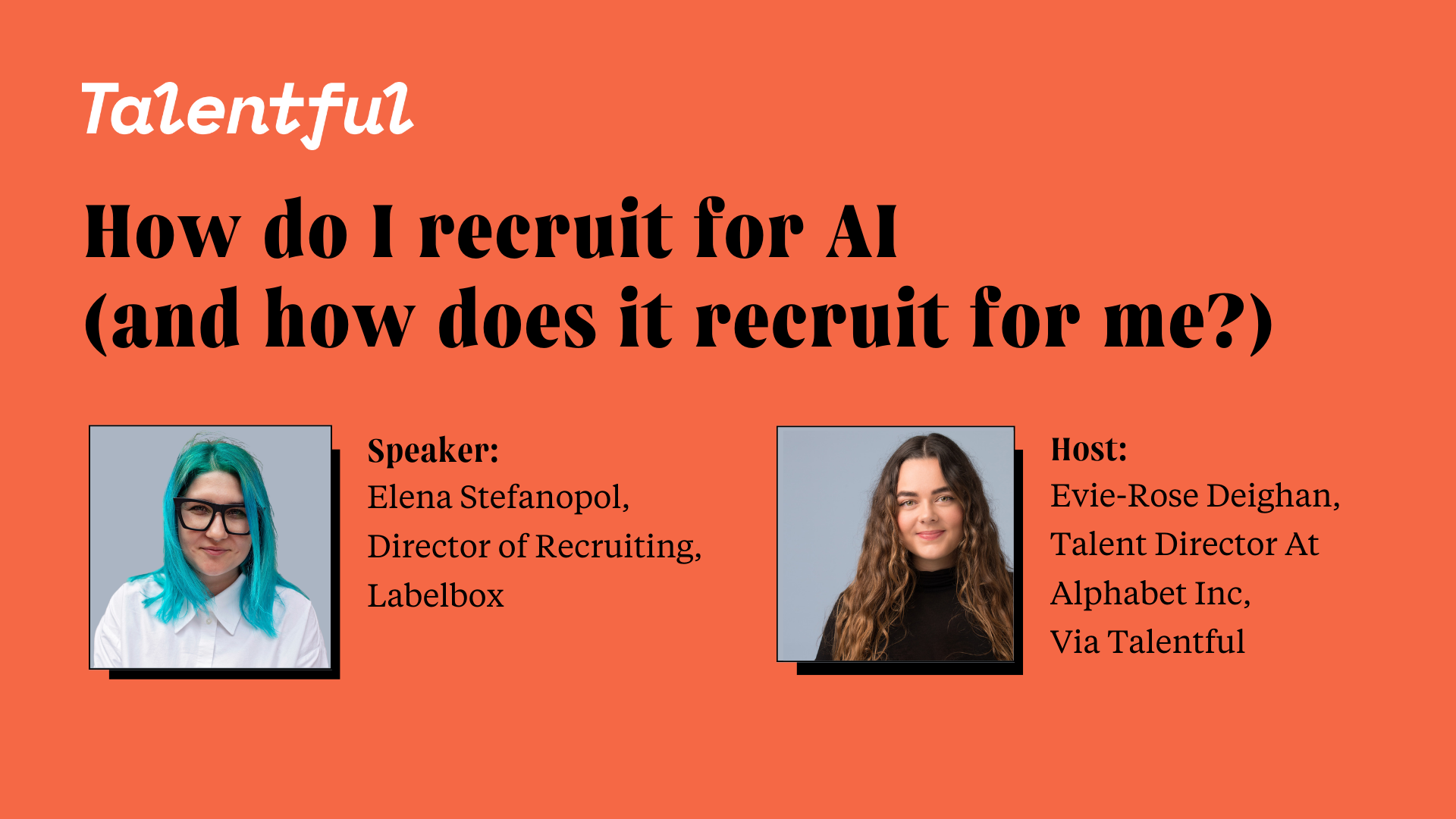A recent Reuters report found that generative AI-related job postings in the US jumped by 20% in May 2023.
AI startups received $12.7 billion in venture funding in the first five months of 2023.

AI is changing the way recruiters work in two key ways. First, today’s recruiters need to learn how to effectively source and assess candidates for AI-related roles — many of which didn’t even exist just a few years ago.
And, at the same time, AI-enhanced apps and software are proving to be valuable additions to the recruiter’s toolbox. Recruitment professionals can use these tools to enhance their processes, drive efficiency, and improve the candidate experience by freeing up time to focus on candidates instead of admin.
We recently held a webinar to discuss both of these changes to the recruitment landscape, which we called How Do I Recruit for AI (And How Does It Recruit for Me)? Over this hour-long session, we discussed:
- The challenges of recruiting for new roles
- How AI can help recruiters get more efficient
- The vital role of the human in recruitment


 One of the first things our speakers discussed was the rise in demand for AI talent, which is growing every year. According to Evie-Rose Deighan, Talent Director for Alphabet, a recent LinkedIn Insights search revealed that there were 3,500 people in the US with “AI engineer” or “AI researcher” in their job title. Demand for this talent is deemed “extremely high”.
One of the first things our speakers discussed was the rise in demand for AI talent, which is growing every year. According to Evie-Rose Deighan, Talent Director for Alphabet, a recent LinkedIn Insights search revealed that there were 3,500 people in the US with “AI engineer” or “AI researcher” in their job title. Demand for this talent is deemed “extremely high”.  According to Elena Stefanopol, Director of Recruiting at Labelbox, the AI revolution will see the talent marketplace divided into two groups: those who embrace AI tools, and those who don’t. The first group will leverage tools such as LLMs (large language models) to become more efficient in their work. But the other group, who are more resistant to change, will likely be left behind.
According to Elena Stefanopol, Director of Recruiting at Labelbox, the AI revolution will see the talent marketplace divided into two groups: those who embrace AI tools, and those who don’t. The first group will leverage tools such as LLMs (large language models) to become more efficient in their work. But the other group, who are more resistant to change, will likely be left behind.  Business Insider
Business Insider  According to the Wall Street Journal, AI startups received
According to the Wall Street Journal, AI startups received Not every recruiter will embrace AI in the same way. Some are naturally resistant to change, while others just lack the time to spend learning about new tools. But having an AI advocate on the team can help get more reluctant colleagues on board.
Not every recruiter will embrace AI in the same way. Some are naturally resistant to change, while others just lack the time to spend learning about new tools. But having an AI advocate on the team can help get more reluctant colleagues on board.  It’s not just recruiters who are using AI to gain time and meet their goals — candidates are catching on too. In fact, Elena and her team at Labelbox have had to adapt their interview processes after realizing that some candidates were using ChatGPT to formulate answers.
It’s not just recruiters who are using AI to gain time and meet their goals — candidates are catching on too. In fact, Elena and her team at Labelbox have had to adapt their interview processes after realizing that some candidates were using ChatGPT to formulate answers.  AI is undoubtedly a powerful tool. But both of our speakers were clear on one thing: AI is not about to replace human recruiters.
AI is undoubtedly a powerful tool. But both of our speakers were clear on one thing: AI is not about to replace human recruiters.